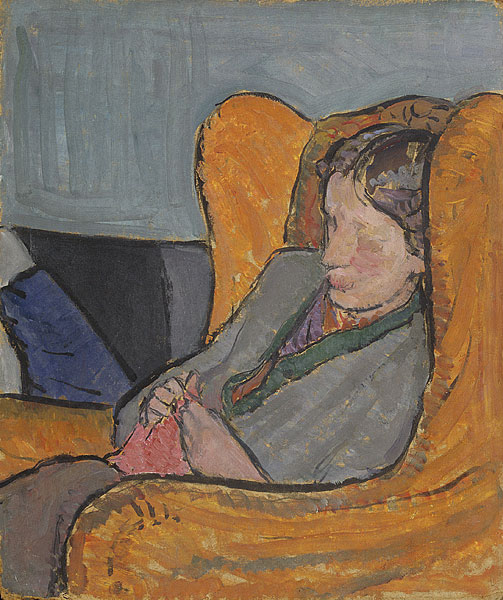Specially dedicated to all the women…
The title of the essay A Room of One’s Own(1929) comes from Virginia Woolf‘s conception that, ‘a woman must have money and a room of her own if she is to write fiction’. Woolf notes that women have been kept from writing because of their relative poverty, and financial freedom will bring women the freedom to write; “In the first place, to have a room of her own… was out of the question, unless her parents were exceptionally rich or very noble”. The title also refers to any author’s need for poetic license and the personal liberty to create art. The essay examines whether women were capable of producing, and in fact free to produce work of the quality of William Shakespeare, addressing the limitations that past and present women writers face.
 Portrait of Virginia Woolf by her sister Vanessa Bell (née Stephen)
Portrait of Virginia Woolf by her sister Vanessa Bell (née Stephen)
Woolf’s father, Sir Leslie Stephen, in line with the thinking of the era, believed that only the boys of the family should be sent to school. Because her father did not believe in investing in the education of his daughters, Woolf was left without the experience of formal schooling. In delivering the lectures outline in the essay, Woolf is speaking to women who have the opportunity to learn in a formal, communal setting. Woolf lets her audience know the importance of their education at the same time warning them of the precariousness of their position in society.
In the essay, Woolf constructs a critical and historical account of women writers thus far. Woolf examines the careers of several female authors, including Aphra Behn, Jane Austen, the Brontë sisters, Anne Finch, Countess of Winchilsea, and George Eliot. In addition to female authors, Woolf also discusses and draws inspiration from noted scholar and feminist Jane Ellen Harrison. Harrison is presented in the essay only by her initials separated by long dashes, and Woolf first introduces Harrison as “the famous scholar… J —- H—- herself”.
Alice Walker, to the subject of much criticism, demeaned Woolf’s essay for its exclusion of women of color, and women writers who do not have any means for obtaining the independence of a room of their own.


